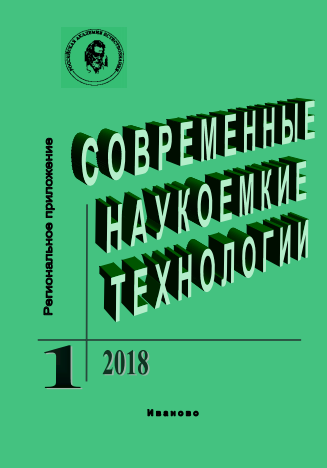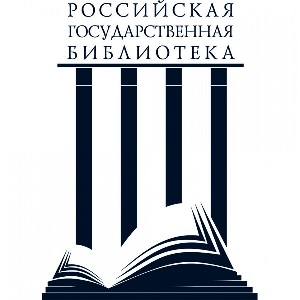АРМИРОВАНИЕ ГИПСА БАЗАЛЬТОВЫМ И СТЕКЛОВОЛОКНОМ
Аннотация
Получены гипсовые композиционные материалы, содержащие армирующие стеклянные (ровинг ARC 2400) и базальтовые (БНВ) волокна, которые предварительно нарезали на отрезки длиной 35-40 мм. Для затворения использовали воду с добавкой поливинилацетата для замедления схватывания затворитель. Проанализированы дифрактограмма и кривые термического анализа исходного гипса. Определены механические характеристики (прочность при сжатии и изгибе) фиброкомпозитов в зависимости от количества вводимых волокон. Установлена их оптимальная концентрация – 1 % для обоих видов волокон. Прочность при сжатии по сравнению с эталоном увеличивалась на 12-16 % у образцов со стекловолокном и на 51-75 % – с базальтовым волокном; прочности при изгибе – на 10-23 % и 7-28 % соответственно. Для оптимального содержания (1 об. %) волокон была изучена кинетика набора прочности. Отмечался существенно замедленный рост прочности композитов по сравнению с чистым гипсом. По-видимому, элементы волокон препятствовали быстрому срастанию кристалликов новообразований в виде двуводного гипса в единый прочный конгломерат. Кроме того, замедляющий эффект мог быть также вызван присутствием поверхностно-активной добавки ПВА. Для всех видов композитов наблюдалось типичный для гипсовых материалов временный спад прочности, связанный с растворением наименее прочных контактов срастания, который впоследствии сменялся значительным упрочнением материала. Интерес представлял тот факт, что на начальном этапе твердения прочности при сжатии (σсжг) и изгибе (σизг) имели близкие значения и лишь по мере приближения к максимумам их величины расходились. оотношения между пределами прочности σсж σизг для композитов были существенно ниже, чем для чистого гипса, за счет бо льшего положительного влияния волокон на σизг.
Литература
Revuelta M.B. Gypsum Products. In: Construction Materials. Springer Textbooks in Earth Sciences, Geography and
Environment. Springer, Cham. 2021. DOI: 10.1007/978-3-
-65207-4
Wei S, Wang C, Yang Y, Wang M. Physical and mechanical properties of gypsum-like rock materials // Adv Civ Eng.
N. 1. P. 1–17. DOI: 10.1155/2020/37037063. Arroyo F.N., Christoforo A.L., Salvini V.R., Pelissari
P.I.G.B., Development of plaster foam for thermal and
acoustic applications // Constr. Build Mater. 2020. V. 262.
Art. 120800. DOI: 10.1016/j.conbuildmat.2020.120800
Kondratieva N., Barre M., Goutenoire F., Sanytsky M. Study
of modified gypsum binder // Constr. Build Mater. 2017. V. 149.
P. 535–542. DOI: .1016/j. conbuildmat.2017.05.140
Батова М.Д., Мальцев И.В., Шаранов А.А., Гордина А.Ф.
Гипсовые композиции с дисперсными модификаторами
//Матер. Межд. научно-практической конф. "Наука сегодня:
задачи и пути их решения". Вологда. 2018. В 2-х частях. Ч.
С. 7–12.
Batova M.D., Maltsev I.V., Sharanov A.A., Gordina A.F.
Gypsum compositions with dispersed modifiers //Mater. International Sci. and Pract. Conf. "Science of this day: tasks
and ways to solve them". Vologda. 2018. Part 1. P. 7-12.
Krejsova J., Dolezelova M., Pernicova R., Svora P.,
Vimmrova A. The influence of different aggregates on the
behavior and properties of gypsum mortars // Cem. Concr.
Compos. 2018. V. 92. P. 188–197. DOI: 10.1016/j.
cemconcomp.2018.06.007
De Oliveira KA, Barbosa J.C., Christoforo A.L., Molina
J.C., Oliveira C. Sound absorption of recycled gypsum matrix composites with residual cellulosic pulp and expanded
polystyrene // BioResources. 2019. V. 14. N. 2. P. 4806–
DOI: 10.15376/biores.14.2.4806-4813
Elkhessaimi Y., Tessier-Doyen N., Smith A. Effects of microstructure on acoustical insulation of gypsum boards // J.
Build Eng. 2017. V. 14. P. 24–31. DOI: 10.1016/j.jobe.
09.011
Srinivasaraonaik B., Singh L.P., Shina S., Tyagi I., Rawat A.
Studies on the mechanical properties and thermal behavior of microencapsulated eutectic mixture in gypsum composite board for
thermal regulation in the buildings // J. Build. Eng. 2020. V. 31.
Art. 101400. DOI: 10.1016/j.jobe.2020.101400
Esan M.T. Review of gypsum reinforced composites as
building materials. Review // Discover Civil Engineering.
V. 1. Art. 5. DOI: 10.1007/s44290-024-00005-x
Boccarusso L., Durante M., Iucolano F., Mocerino D.,
Langella A. Production of hemp-gypsum composites with enhanced flexural and impact resistance // Constr. Build Mater.
V. 260. Art. 120476. DOI: 10.1016/ j.conbuildmat.2020.
Dima C., Badanoiu, A., Cirstea, S., Nicoara, A.I.,
Stoleriu, S. Lightweight Gypsum Materials with Potential
Use for Thermal Insulations // Materials. 2020. V. 13. N. 23.
Art. 5454.DOI: 10.3390/ma13235454
Doleželová M., Scheinherrová L., Krejsová J., Keppert
M., Cˇerný R., Vimmrová A. Investigation of Gypsum
Composites with Different Lightweight Fillers // Constr.
Build. Mater. 2021. V. 297. Art. 123791. DOI: 10.1016/j
.conbuildmat.2021.123791
Bumanis G., Sapata A., Sinka M., Spurina E., Bajare D.
Manufacturing of Lightweight Gypsum and Expanded Polystyrene Granulate Composite // J. Compos. Sci. 2023. V. 7. N
Art. 425. DOI: 10.3390/jcs7100425
Swolfs Y., Verpoest I., Gorbatikh L. Recent advances in
fibre-hybrid composites: materials selection, opportunities
and applications // Int. Mater. Rev. 2019. V. 64. N. 4/ P.
–215. DOI: 10.1080/09506608.2018.1467365
Shiroma L., Camarini G., Beraldo A.L. Effect of wood
particle treatment on the properties of gypsum plaster pastes
and composites // Rev. Mater. 2016. V. 21. N. 4. P. 1032–
DOI: 10.1590/S1517-707620160004.0095
Quintana A., Alba J., del Rey R., Guillén I. Comparative
Life Cycle Assessment of gypsum plasterboard and a new kind of bio-based epoxy composite containing different natural fibers // J. Clean. Prod. 2018. V. 185. P. 408–420. DOI:
1016/j.jclepro.2018.03.042
Sair S., Mandili B., Taqi M., El Bouari A. Development of
a new eco-friendly composite material based on gypsum reinforced with a mixture of cork fibre and cardboard waste for
building thermal insulation // Compos. Commun. 2019. V.
P. 20–24. DOI: 10.1016/j.coco.2019.08.010
Boumaaza M., Belaadi A., Bourchak M. Systematic review on
reinforcing mortars with natural fibers: challenges of environment-friendly option // J. Nat. Fibers. 2022. V. 19. N. 16. P.
–14286. DOI: 10.1080/15440478.2022.2060408
Pedreño-Rojas M.A., Morales-Conde M.J., Pérez-Galvéz
F., Rodríguez-Linan C. Eco-efficient acoustic and thermal
conditioning using false ceiling plates made from plaster and
wood waste // J. Clean. Prod. 2017. V. 166. Art. 3. P. 690–
DOI: 10.1016/j.jclepro.2017.08.077
Haba B., Benali F., Jawaid M., Leao A.L. A Review on
gypsum-based composites reinforced with palm fibers in
construction applications // Int. J. Thermophys. 2022. V. 43.
N. 11. Art. 164. DOI: 10.1007/s10765-022-03086-x
Jia R., Wang Q., Feng P. A comprehensive overview of
fibre-reinforced gypsum-based composites (FRGCs) in the
construction field // Compos. Part B Eng. 2021. V. 205. N.
Art. 108540. DOI: 10.1016/j.compositesb.2020.108540
Iucolano F., Boccarusso L., Langella A. Hemp as eco-friendly
substitute of glass fibres for gypsum reinforcement: Impact and
flexural behaviour // Compos. Part B Eng. 2019. V. 175. Art.
DOI: 10.1016/j.compositesb.2019.107073
Dharmasastha K., Samuel D.L., Nagendra S.S., Maiya M.
Experimental investigation of thermally activated glass fibre
reinforced gypsum roof // Energy Build. 2020. V. 228. Art.
DOI: 10.1016/j.enbuild.2020.110424
Gonçalves R.M., Martinho A., Oliveira J.P. Evaluating the
potential use of recycled glass fibers for the development of
gypsum-based composites // Construction and Building Materials. 2022. V. 321. Art. 126320. DOI: 10.1016/j.
conbuildmat.2022.126320
Álvarez M., Ferrández D., Morón C., Atanes-Sánchez E.
Characterization of a New Lightened Gypsum-Based Material Reinforced with Fibers // Materials. 2021. V. 14. Art.
DOI: 10.3390/ma14051203
Ившин С.С., Ившина A.A., Федоров A.В., Зарипова Д.Н.
Утилизация стеклопластиков на основе фенолформальдегидной смолы. Изв. вузов. Химия и хим. технология. 2023. Т.
Вып. 9. С. 104-109. DOI: 10.6060/ivkkt. 20236609.6707
Naser M.Z., Hawileh R.A., Abdalla J.A. Fiber-reinforced
polymer composites in strengthening reinforced concrete
structures: a critical review // Eng. Struct. 2019. V.198. Art.
DOI: 10.1016/j.engstruct.2019.109542
Gencel O., del Coz J.J., Sutcu M., Kokal F., Álvarez F.P.,
Martínez-Barrera G. A novel lightweight gypsum composite with diatomite and polypropylene fibers // Constr. Build.
Mater. 2016. V. 113. P. 732–740. DOI: 10.1016/j.
conbuildmat.2016.03.125
Bicer A., Kar F. Thermal and mechanical properties of gypsum plaster mixed with expanded polystyrene and tragacanth
Therm. Sci. Eng. Prog. 2017. N 1. P. 59–65. DOI:
1016/j.tsep.2017.02.008
Binici H., Aksogan O. Insulation material production from
onion skin and peanut shell fibres, fly ash, pumice, perlite,
barite, cement and gypsum // Mater. Today Commun. 2017.
N .10. P. 14–24. DOI: 10.1016/j.mtcomm.2016.09.004














